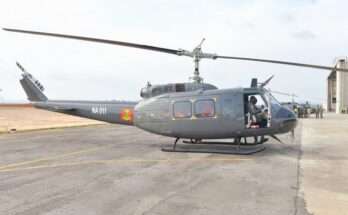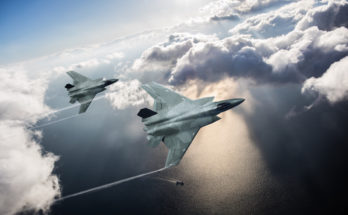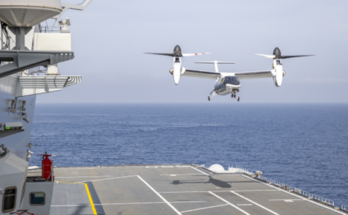
As recently as just a week ago, the broad consensus among diplomats and observers held that political developments over the last three years had brought the strategic latitude and very sovereign autonomy of the Republic of Belarus to a nadir unprecedented in its time as an independent state. There was, and remains, ample cause for such analysis. In the long wake of Alexander Lukashenko’s fraudulent 2020 election and ruthless suppression of contemporaneous democratic protests, Belarus’s status as a global pariah has left it overwhelmingly dependent upon the economic and security lifelines provided by its larger eastern neighbor. It seemed that Lukashenko, who for decades had proven a chameleonic survivor and savvy navigator of the space between competing strategic poles of power, had finally run through his supply of gambits and good fortune. The writing was on the wall; Belarus had been relegated to a Russian vassal state.
This state of affairs made it all the more shocking when the embattled Lukashenko emerged this past week, not only in his own retelling but in that of a number of Russian officials and the coverage of a fawning Russian press, as the hero of the moment, who by securing the negotiated surrender and exile of mercenary magnate Yevgeny Prigozhin saved not only Vladimir Putin’s regime but perhaps all of Russia itself from the calamitous prospect of a second civil war with a nothing more than a phone call. The precise timeline and logistics of Lukashenko’s intervention into the Prigozhin affair is liable to remain shrouded in some degree of ambiguity for now, with the view of outside observers into the negotiations process coming primarily via a boastful, and naturally self-interested, hours-long narrative of the incident told by Lukashenko himself and the attendant Russian and Belarusian press coverage that followed in the subsequent days. In this retelling, Lukashenko acted under personal initiative to encourage Prigozhin to halt his advance on Moscow while imploring Putin to not act too rashly in crushing the mutiny with force.
Whatever the precise reality of events, the manner of Lukashenko’s re-entry into the limelight is emblematic of the pressures and contradictions at the heart of contemporary Russo-Belarusian relations, both underlining Lukashenko’s present fealty and advanced condition of dependency on Putin while simultaneously exhibiting his lingering capacity to wrest potential concessions from his more powerful partner by leveraging the country’s unique position amidst a time of crisis. Even in Belarus’s heavily subordinated state, recent events have made the faintest glimmer of its independent foreign policy visible again.
Longtime observers of Belarus are well acquainted with the country’s bilateral relations with Russia being characterized by variations of this same cycle. For decades, Lukashenko leveraged his country’s strategic position and his shared political affinities with Putin to secure preferential treatment from Russia, only to in turn tout the prospect of possible political reforms and a new turn toward autonomy to court the favor of Western capitals and in so doing spook the security-conscious Putin into accepting renegotiated deals preferable to Belarusian interests.
Just four years ago, Belarusian foreign policy was undergoing perhaps its most profound Westward turn since Lukashenko’s first ascent to the presidency. Unnerved by the irredentist ambitions revealed by Putin’s first invasion of Ukraine in 2014 and seeking to safeguard his regime from both the emerging state threat to the east and potential pro-Russian insurrectionists within, Lukashenko enlisted his urbane foreign minister, the late Vladimir Makei, to court favor among both Western capitals and his domestic population by publicly embracing the constitutional principle of neutrality and attempting to cast Belarus as a haven of stability and mediation in a region steadily becoming unwound by great power competition. State media expounded upon the dangers lurking in Russian chauvinism (and even Wagner itself), while ideological appeals to Belarusian nationhood increasingly peppered official speeches. These bundled concepts lie at the center of the country’s now largely abandoned “multi-vector” foreign policy platform.
As the war in Ukraine intensified, Lukashenko capitalized on his unique position of having deep ties to Russian leadership while simultaneously being able, at least nominally, to claim sympathy for Ukraine as a fellow independent state residing between the competing blocs of power. So emerged the Minsk Agreements framework. Although Minsk proved a suboptimal solution that failed to resolve the war’s fundamental causes or prevent future Russian aggression, the fleeting deintensification of the conflict nevertheless served as a rare public relations and diplomatic coup for the Belarusian leader. Long isolated, Minsk could now boast of having brought together the preeminent leaders of Europe in one place to achieve “peace for our time.” The diplomatic dividends achieved by Minsk appeared to promise a new future for the country on the global stage. Belarus began building new inroads to the United States and freely offered itself as an inoculator for other global conflicts, and the man frequently known as “Europe’s last dictator” found himself socializing with Western leaders at the 2019 European Games. It was not to last.
Although Lukashenko had proven canny in adapting himself to the emerging strategic climate in Europe, his confidence that he had long ago tamed the country’s traditional domestic opposition rendered him less able to recognize the extent to which the evolution of Belarusian society after two decades of independence had generated new forms of social and political mobilization that would soon come to test his monopoly on power. Lukashenko’s brusque indifference to the economic and human toll inflicted on the country by the COVID-19 pandemic, paired with impending arrangements for what was to be yet another rubber stamp election, proved a catalytic moment for expediting the birth of this new generation of Belarusian oppositionists. For a leader whose personal relationship with the Belarusian national project most often resembles that most famous apocryphal quotation of Louis XIV, the resulting protests represented an existential challenge that could not be countenanced. Although the Belarusian state had spent years attempting to relegate the use of its most coercive tools to the shadows in a bid to improve its external image, the danger posed by the protest wave was such that they were instead unleashed against the Belarusian people with a ferocity unseen since the infamous days of the early 2000s, and in full view of the global community. The peacemaker had become a pariah once again.
Diplomatically isolated once more and placed under a stringent regime of sanctions by Western states in the wake of his suppression of the protest movement, Lukashenko could only turn to Putin to help preserve his parochial authority. For Putin, Lukashenko’s predicament no doubt represented a welcome opportunity to humble a junior partner who had long displayed an irritating tendency to push the boundaries of his station while at the same time shoring up Russia’s Western flank amidst the intensification of the country’s confrontation with the West. With Lukashenko’s rule increasingly preserved only by the thread of Russian economic patronage and security guarantees, Belarus possessed little of its historical latitude for maneuvering. Integration measures that Belarus had long resisted under the Union State framework began to advance, Belarus’s long-term economic interests took secondary priority to Russian ones, and Russian troops found their way into Belarusian soil in increasingly dramatic numbers. By 2022, the country that had hosted peace talks only a few years prior instead became a staging ground for, and facilitator of, renewed Russian aggression against Ukraine.
Yet, although these compromised circumstances were of Lukashenko’s own making, they nevertheless likely represented an intolerable condition for a leader who himself had once held ambitions to rule over a united union state and had long valued his ability to retain a certain autonomy. The rumblings of this vestigial pursuit of Belarusian independence began early. In May 2022, while Russian leaders were still steadfastly insisting that the invasion of Ukraine was proceeding apace, Lukashenko took to the airwaves and bluntly acknowledged the reality of the situation in a widely disseminated interview. In other domains, Lukashenko’s public divergences with Moscow take on more of an air of rhetorical theater. Although by all accounts Russia is firmly in control of the nuclear weapons it has recently deployed to Belarus, Lukashenko has wasted no time in suggesting otherwise by letting loose salvos of fiery nuclear threats against any prospective party that would violate Belarusian sovereignty, save for Russia anyway.
Within this context, the Prigozhin crisis represented both a peril and an opportunity for Lukashenko. For all his aforementioned grumblings, for Lukashenko there is little question that the fragile, post-crackdown Belarusian economy is ill able to absorb the massive shocks that would result from a prolonged disruption to Russia’s internal security environment. The potential fraying of Putin’s authority likewise posed dual concerns for the Belarusian leader, threatening to embolden the domestic democratic opposition while also potentially resulting in the ascendance of even more extreme Russian revanchists from Prigozhin’s camp who might possess little interest in preserving the special understanding between Putin and Lukashenko regarding matters of sovereignty. However, as both a partner to Putin and a longtime acquaintance of Prigozhin, Lukashenko also viewed the crisis as an irresistible opening to reassert his latitude of action and marginally rebalance the scales of power in a diplomatic relationship that had grown overwhelmingly tilted in Russia’s favor.
Although the subtle rebalancing of Russo-Belarusian power relations will play out gradually over the coming months, in the immediate term Belarus is poised to become the new home of ronin of the Wagner organization, but few know for how long and to what end. Reports from some independent press outlets indicate that holding camps fit for housing thousands of men are now under construction in Belarus, while other sources indicate that only a tiny fraction of the organization’s fighters are ultimately expected to follow their disgraced leader into exile. The camps may simply serve the temporary function of defusing any lingering potential for the reignition of the crisis, granting the Russian government physical and temporal space to either demobilize or reintegrate Wagner’s fighters into the structures of the Ministry of Defense, as official Russian channels have suggested, but speculation abounds. Lukashenko himself has indicated Wagner’s fighters will play at least some transient role in training Belarusian forces. Other analyses have floated the prospect that Belarus could enlist the remnants of Prigozhin’s military empire to advance its own long-standing economic and political interests in Africa, where Wagner generated both profit and infamy operating in states such as the Central African Republic and Sudan. In a saga that has continued to confound and surprise even longtime observers, it is perhaps foolish to grow too attached to any one line of prediction lest it be overturned tomorrow.
Beyond garnering the plaudits of the Russian commentariat, it would be a mistake to overstate the extent to which Lukashenko’s moment in the limelight has fundamentally reordered the balance of power between the two countries. The material circumstances governing Belarus’s subordination have only scarcely improved. Likewise, Putin’s foreign policy dictates emerge out of expediency, not gratitude. Just as Russian official discourse expeditiously transitioned Prigozhin from patriot to traitor and then to wayward son nearly overnight, nothing about the present condition of Russo-Belarusian relations or Lukashenko’s place in them is written in stone. Still, as the public furor over the crisis recedes, Lukashenko can be certain to both expect and demand concessions as repayment for his service. Even with regard to its most pliant client, Russia cannot so easily dictate terms in the wake of the Wagner crisis, exposing the latent fault lines in its ability to impose hegemony and manage its clients across its near abroad.
A lifelong enthusiast of armored vehicles, Thomas serves as an analyst on Forecast International's Military Vehicles Forecast product. In addition, Thomas is responsible for updating the reports and analysis within Forecast International's International Military Markets – Latin America & Caribbean product. He also provides analysis for Forecast International's Airborne Retrofit & Modernization Forecast. Before this assignment, Thomas served as a research assistant for Forecast International's analytical team and has made written contributions to the Civil Aircraft Forecast, Military Aircraft Forecast, and Rotorcraft Forecast services. Thomas derives his knowledge from a multidisciplinary background, with a strong emphasis on the history and politics of Russia and the former satellite republics of the Soviet Union. He has studied in the Russian Federation at Saint Petersburg State University and is proficient in the Russian language at an advanced level.




